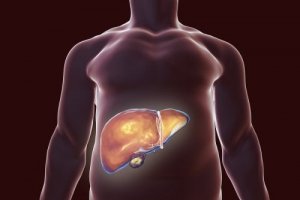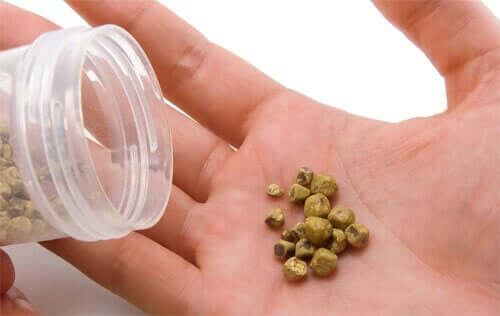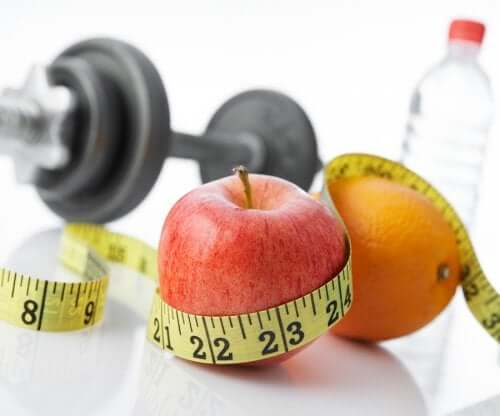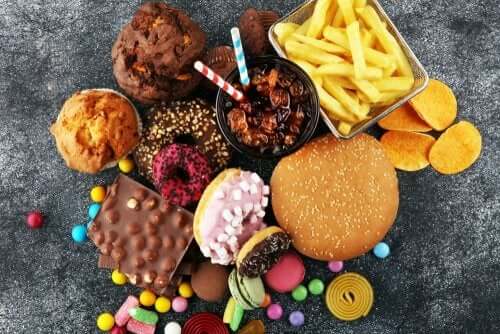Gallbladder Diet Do's and Don'ts


Written and verified by the nutritionist Eliana Delgado Villanueva
Do you have gallstones? If so, you may need to adopt a gallbladder diet.
As you may already know, we are what we eat. To improve this condition, you must reduce your chances of inflammation so that your gallbladder can contract. Particularly, you must be very picky about the fats you consume.
Keep reading to learn more about how eating can help relieve the symptoms generated by gallstones.
The Gallbladder

The gallbladder is a pear-shaped sac, surrounded by a muscular wall on the upper right side of the abdomen. It holds and concentrates bile, a liquid produced by the liver that’s highly necessary for the digestion of fats and absorption of vitamins.
Gallstones are the result of crystallization of bile, a fluid produced by the liver and secreted into the intestine through the bile ducts to help with digestion. Some gallstones don’t produce any detectable symptoms.
Some professionals believe that gallstones are the result of poor eating habits. For instance, excessive consumption of foods high in fat forces the liver to secrete more bile. Hence the importance of controlling what you eat, both to prevent the appearance of stones and to relieve their symptoms.
Generally, gallstones are more frequent in women over the age of 50 and with a family history of gallbladder problems. Its incidence is also higher during pregnancy and in those who take oral estrogen, as well as in people who fast frequently, those who don’t exercise, and those with fatty liver disease.
You may want to read: 6 Foods to Help Fight Gallstones
Gallbladder Diet Tips

Here are some of the fundamentals of a diet that’s healthy for your gallbladder.
Fatty foods
- In brief, the bile produced from the gallbladder is important in digesting fats, so eating a fat-heavy diet may force it to work overtime. Thus, processed foods high in trans fats, hydrogenated oils, fried foods, and excessive saturated animal fats overwork the gallbladder.
In general, the dietary recommendations to follow if you have gallbladder stones are simple: Eat a varied diet that’s low in bad fats and cholesterol, adjust the caloric intake of your daily diet, adjust your big meals into five servings a day, don’t fast, and don’t overeat.
Here are some of the healthiest foods for your gallbladder:
Liquids
- Water
- Warm herbal infusions
- Milk in small quantities (you may progressively increase it).
Soups, Porridge, and Purees
- Vegetable broths with soft rice and pasta
- Cooked porridge made with oatmeal, lentils, corn, rice, quinoa, etc
- Mashed and cooked potatoes
- Cooked vegetable puree
Meats
- Veal, rabbit or sheep either boiled, grilled or roasted
- Chicken: boiled, grilled or roasted
- Lean pork, slightly salty or sweet
- Whitefish, sole, hake, whiting (boiled, grilled or roasted and lightly seasoned).
Desserts
- Flan, jam, compote, fruit juice, cooked fruits, raw apples, etc
- Toast, dry cookies, whole grain bread (fresh, non-processed), dried pastries, puff pastry, and sponge cake.
Recommended Methods
- First, make sure to keep an eye on the quality of your cooking fats.
- Then, save fried food for special occasions. Don’t heat the oil above 200° F.
- Finally, consume food raw, boiled, ironed, steamed, en papillote, etc.
Read also: Read These Diet Tips to Prevent Gallstones
What to Avoid on a Gallbladder Diet

- Avoid extreme food temperatures. This is because too cold and too hot foods and drinks are strong biliary stimulants, so it’s preferable to eat it at a medium temperature.
- Eliminate refined sugars: Some studies reveal that high concentrations of monosaccharides and disaccharides stimulate the secretion of bile. Therefore, you should only consume them moderation and in smaller quantities.
- Xanthines. Food rich in caffeine and theobromine such as coffee, maté, concentrated tea, and cola drinks overwork the gallbladder, so minimize your consumption of these.
- Large amounts: Anything is bad in large amounts, so eat several times a day and in smaller quantities.
- Overall, reduce your intake of fruit juices, carbonated drinks, and alcohol.
Finally, people with gallbladder stones should consult a nutritionist to have an individual nutritional plan according to their needs and a gastroenterologist to indicate the treatment to follow. Your doctors will be able to provide you with the best guidance.
All cited sources were thoroughly reviewed by our team to ensure their quality, reliability, currency, and validity. The bibliography of this article was considered reliable and of academic or scientific accuracy.
- Wilkins T, Agabin E, Varghese J, Talukder A. Gallbladder Dysfunction: Cholecystitis, Choledocholithiasis, Cholangitis, and Biliary Dyskinesia. Prim Care. 2017 Dec;44(4):575-597. doi: 10.1016/j.pop.2017.07.002. Epub 2017 Oct 5. PMID: 29132521.
- Hita G., Ramírez B., Estela B., Cerda A., Factores de riesgo en la génesis de la litiasis vesicular. Investigación en salud, 2005.
- Martínez García RM, Jiménez Ortega AI, Salas-González MªD, Bermejo López LM, Rodríguez-Rodríguez E. Intervención nutricional en el control de la colelitiasis y la litiasis renal [Nutritional intervention in the control of gallstones and renal lithiasis]. Nutr Hosp. 2019 Aug 27;36(Spec No3):70-74. Spanish. doi: 10.20960/nh.02813. PMID: 31368343.
This text is provided for informational purposes only and does not replace consultation with a professional. If in doubt, consult your specialist.








